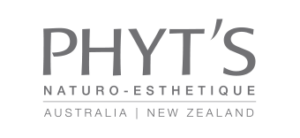Acne
Acne is a skin condition that has been experienced by countless generations with seemingly countless approaches to its treatment. Why try ancient poultices or harsh detergent-like cleansers when there is now a holistic approach to acne treatments that not only clears the skin but improves overall skin health.
It is important to note that acne affects everyone, not just teenagers. Contrary to popular belief, acne is not caused by things like poor hygiene or greasy food. These elements can undoubtedly exacerbate acne but are not the root cause.
First, let’s begin with understanding acne itself. Acne is an inherited disorder of the pore. Acne-prone pores shed five times more dead skin cells than an average pore, which results in retention hyperkeratosis.
Not only do skin cells or keratinocytes shed at an accelerated rate, but these keratinocytes are also mingling with excess oil that is common within the acne-prone pore. This interaction produces a sticky consistency that is difficult for the skin to shed properly. This abnormal shedding clogs the pores ultimately leads to the formation of micro-comedones under the skin.
Moisture is Key
Because the most common approach to clearing acne is using dry, harsh products, it is commonly believed that acne needs to be ‘dried out.’
In fact, drying the skin out to clear up acne will actively work against achieving healthy, clear skin.
Optimal skin health requires a healthy barrier, with or without acne. A compromised barrier can lead to even more skin issues. With that said, adequate moisturisation and hydration are necessary for acneic skin to balance out active ingredients and allow the skin to repair itself.
Taking a Holistic Approach
The unfortunate reality of acne is that many people have been prescribed medications like antibiotics, isotretinoin, adapalene, spironolactone—the list goes on of drugs that may clear acne, but only for a limited time.
Topical and oral antibiotics, for instance, can provide clear skin while they are being used, but most people experience moderate to severe breakouts once they have discontinued use.
Probiotics are a recommended supplement to help balance the effects the antibiotics have had on an acne client’s system.
These drugs are not long-term solutions for acne because they come with a laundry list of unsavoury side effects and contribute to poor skin health and health in general. Prescription drugs are simply a temporary fix, which can be even more frustrating than the acne itself.
When people seek a solution for acne, they often focus on the surface level, which is entirely understandable. While acne is a skin condition, it is affected by internal factors of the body.
Diet
Though acne cannot be cured, it can be controlled through targeted skincare and lifestyle adjustments. Acne can be managed with thoughtful dietary choices.
First, it’s important to note that moderation is vital. Cutting back or limiting the intake of triggering food is recommended; remember that we’re all human! Indulging every now and then is fine as long as it’s not a regular practice.
Take note that acne triggers can be particular to each person, so we recommend keeping a food journal to keep track of and eventually rule out certain foods.
For instance, foods high in saturated fat, trans fat and sugar cause inflammation in the body and therefore cause inflammation in the skin. Another concern is the over-consumption of omega-6 fatty acids like corn, safflower, soybean, and sunflower oils—olive oil and coconut oil are great healthy alternatives.
Iodides, which are found in things as simple as table salt to various soy products like tofu and seaweed, are some of the most pervasive acne triggers. Instead, opt for acne-safe sea salt, non-iodized salt or Celtic salt. Shellfish and seaweed should be consumed in moderation, as they are rich in iodine.
A well-known and equally triggering acne enemy are dairy products. Dairy products like milk, cheese, and yogurt can exacerbate breakouts. Think of dairy consumption as an internal domino-effect: the high glycemic index of dairy triggers an increased insulin level and the release of the IGF-1 hormone. The triggering of this growth hormone can have effects on sebum and skin cell production.
Other ingredients like peanut butter (opt for almond or other nut butter) and organ meats are high in androgens and create a similar problem.
The diet of an acne-prone individual should be as anti-inflammatory as possible, rich in antioxidants (think dark leafy greens) and essential fatty acids (salmon, white fish, and pharmaceutical grade omega-3 supplements).
It may also be advantageous to see a functional medicine doctor or holistic nutritionist who can determine if any hormonal or nutritional imbalances are perpetuating acne.
There are several preventative measures acne-prone people can take in their everyday life to avoid worsening or causing breakouts. One of the most common household items that can contribute to acne flare-ups is laundry products. Free and clear laundry detergents are best for acne-prone people as fragrance and dyes are known skin irritants. Dryer sheets leave a waxy residue on the fabric that can irritate skin and potentially clog pores. A good idea is to swap pillowcases every day to avoid sleeping on bacteria and dead skin cells that can contribute to breakouts.
The new approach to acne is not just results-driven but an entirely sustainable method to promote healthy skin from the inside out.
pro.phyts.com.au





